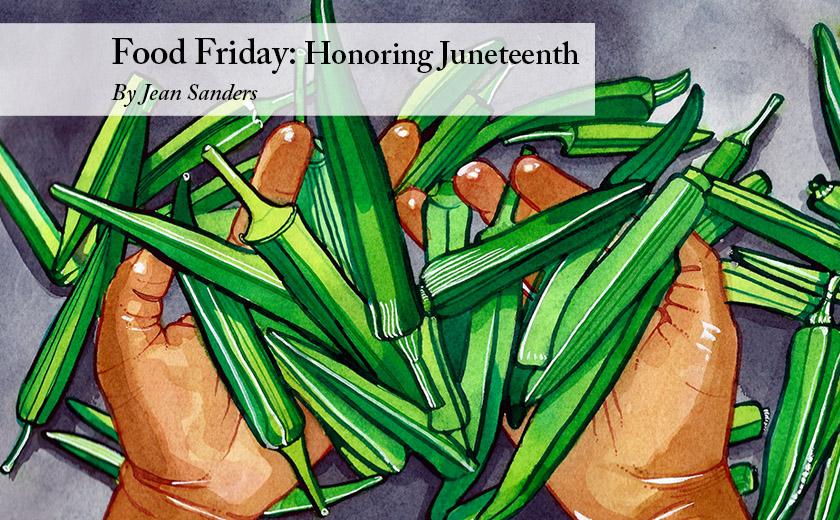I didn’t learn about Juneteenth when I was growing up. I was taught that Lincoln freed the slaves, and we all lived happily ever after. I learned later in life that Juneteenth is named for the day in the middle of June of 1865, when the Union Major General Granger announced the end of slavery to the last enslaved African Americans in Galveston, Texas, more than two years after President Abraham Lincoln’s 1863 Emancipation Proclamation. The first Juneteenth celebration was held the following year, and the celebrations have spread to every corner of the country since.
I want to be careful about writing about Juneteenth. I don’t want to appropriate the significance of this Black American holiday which is only being recognized by the government as a federal holiday for the first time this year, 157 years since the actual event.
As a food writer and home cook it is easy for me to wander the halls of history and culture and pick up a soupçon of French style, a dollop of Greek passion, a nibble of Middle Eastern angst, or a taste of British class conflict. I am a mongrel American, but I am a white American. I grew up in a household of bland food, where garlic was considered exotic. My mother relied on convenience foods like boxes of frozen vegetables. We had cubed steaks for dinner, and bologna sandwiches for lunch. Pizza was exotic. I was 18 before I ever saw a Brussels sprout, and 25 before I tasted okra. Now we are lucky enough to sample foods from all over the world through the heritage of many cultures who live in our country. Life is richer and more flavorful here in the inclusive 21st century.
This Juneteenth I will be doing some home cooking to honor the legacy of the Black Texans on the anniversary of Emancipation Day. I will try to honor the memory of enslaved cooks who brought African cooking to America. I’ll remember their pain and suffering, while cooking some of their traditional recipes which have enriched and enlivened Southern cooking.
A good place to start is with okra. Enslaved West Africans brought okra seeds to America in the 1700s. They also brought watermelon, yam, black-eyed pea, and pepper seeds. You can find okra in regional varieties of gumbo stew, or breaded and fried. Of course, almost anything tastes better fried.
https://www.foodfidelity.com/southern-fried-okra/
Here is a tasty salad that will feed a holiday crowd: https://www.eatingwell.com/article/7916898/okra-greens-salad-from-brazil/
Always popular are okra stews:
https://www.youtube.com/watch?v=O3dl8rlBBzA&t=1s
If you have a lot of okra on hand, and those CSA boxes are often packed with it, Food52 can help you decide what to do: https://food52.com/recipes/okra
But if you are squeamish about okra, there are many other foods served at Juneteenth celebrations: fried chicken, barbecue, tomato salads, red beans and rice, and strawberry pie. There is something for everyone: https://www.seriouseats.com/juneteenth-menu-5189136
Spread the joy of freedom and emancipation, of equality and fairness this Juneteenth. Liberty for all.
“Juneteenth has never been a celebration of victory or an acceptance of the way things are. It’s a celebration of progress. It’s an affirmation that despite the most painful parts of our history, change is possible—and there is still so much work to do.”
— Barack Obama



Write a Letter to the Editor on this Article
We encourage readers to offer their point of view on this article by submitting the following form. Editing is sometimes necessary and is done at the discretion of the editorial staff.